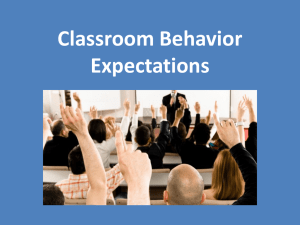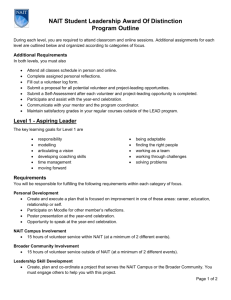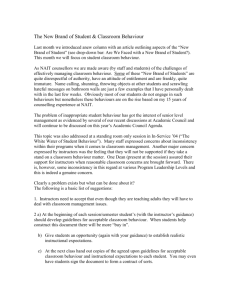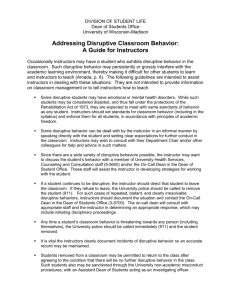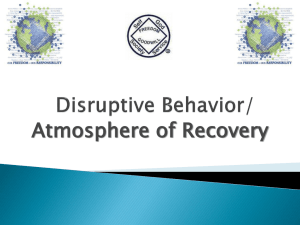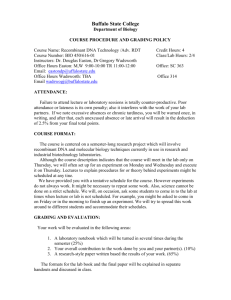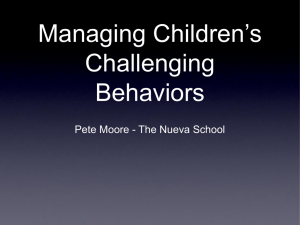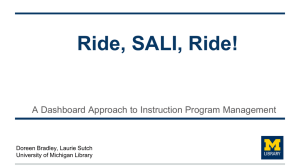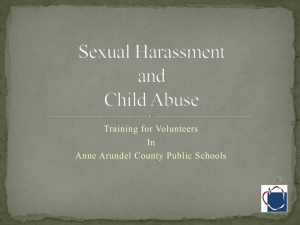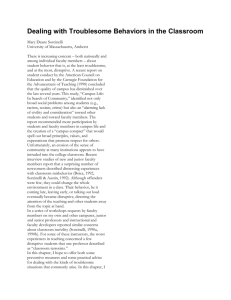Dealing with Disruptive Students
advertisement
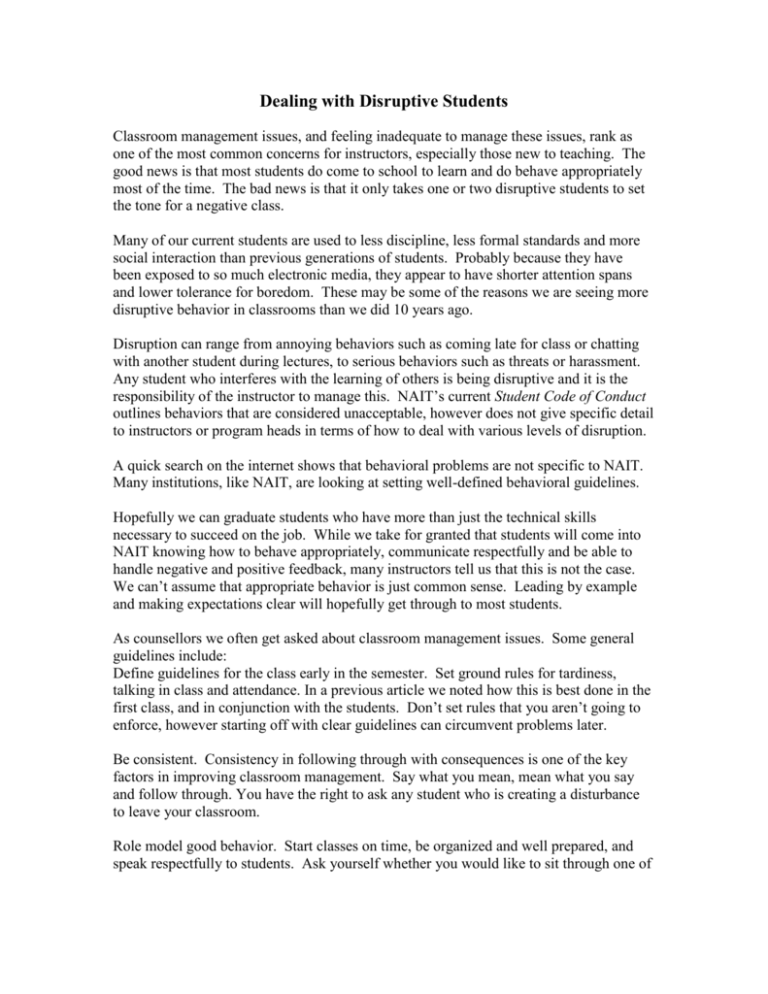
Dealing with Disruptive Students Classroom management issues, and feeling inadequate to manage these issues, rank as one of the most common concerns for instructors, especially those new to teaching. The good news is that most students do come to school to learn and do behave appropriately most of the time. The bad news is that it only takes one or two disruptive students to set the tone for a negative class. Many of our current students are used to less discipline, less formal standards and more social interaction than previous generations of students. Probably because they have been exposed to so much electronic media, they appear to have shorter attention spans and lower tolerance for boredom. These may be some of the reasons we are seeing more disruptive behavior in classrooms than we did 10 years ago. Disruption can range from annoying behaviors such as coming late for class or chatting with another student during lectures, to serious behaviors such as threats or harassment. Any student who interferes with the learning of others is being disruptive and it is the responsibility of the instructor to manage this. NAIT’s current Student Code of Conduct outlines behaviors that are considered unacceptable, however does not give specific detail to instructors or program heads in terms of how to deal with various levels of disruption. A quick search on the internet shows that behavioral problems are not specific to NAIT. Many institutions, like NAIT, are looking at setting well-defined behavioral guidelines. Hopefully we can graduate students who have more than just the technical skills necessary to succeed on the job. While we take for granted that students will come into NAIT knowing how to behave appropriately, communicate respectfully and be able to handle negative and positive feedback, many instructors tell us that this is not the case. We can’t assume that appropriate behavior is just common sense. Leading by example and making expectations clear will hopefully get through to most students. As counsellors we often get asked about classroom management issues. Some general guidelines include: Define guidelines for the class early in the semester. Set ground rules for tardiness, talking in class and attendance. In a previous article we noted how this is best done in the first class, and in conjunction with the students. Don’t set rules that you aren’t going to enforce, however starting off with clear guidelines can circumvent problems later. Be consistent. Consistency in following through with consequences is one of the key factors in improving classroom management. Say what you mean, mean what you say and follow through. You have the right to ask any student who is creating a disturbance to leave your classroom. Role model good behavior. Start classes on time, be organized and well prepared, and speak respectfully to students. Ask yourself whether you would like to sit through one of your own lectures, and if you wouldn’t how could you make the material more meaningful and interesting. Deal with inappropriate behavior as soon as it occurs. If talking during lectures is disrupting your classroom then don’t tolerate it. Stop teaching until the room is quiet, stand near the offenders when lecturing, ask if the offending student has a question, or give a single warning and then ask the disruptive student(s) to leave the class. Get to know your students, show concern for your students, but do not try to be buddies with your students. This is not an equal relationship, and it is difficult to be objective about marking or dealing with behavioral concerns if you are trying to be friends. In the long run instructors who socialize and try to fit in with their students often lose students’ respect. The Human Touch – being fair and recognizing that life happens and students may not have the support or role models at home for dealing with stress and crises, and that everyone has different thresholds for stress, is very important to our students. Just being willing to listen can help a lot. The NAIT Student Code of Conduct clearly states that fighting will not be tolerated, and that students will be suspended and may be expelled after any incidents. Any student who displays violent or threatening behavior should be dealt with immediately. Call security if necessary. This student should not be allowed to return to class without clear expectations in place, advisedly in the form of a Behavioral Contract. Document the behavior. If you are unsure whether an individual is a risk call Student Counselling for advice. There should also be zero tolerance for any form of violence, harassment, intimidation, or discrimination against race, gender, religion, or sexual orientation. Students should be spoken to in private if any of these behaviors occur. All incidents of inappropriate behavior should be documented in writing, and serious incidents should be discussed with the program head. The student should receive a warning letter that no further incidents will be tolerated, and/or sign a behavioral contract specifying the expected behaviors, and the consequences for any further infringements. While disruptive students are going to be part of life for instructors, taking firm, consistent and immediate action to deal with unruly behavior should make the classroom a more pleasant and productive place for everyone. All students should have the freedom to learn, and all humans (even instructors!) have the right to be treated with respect and dignity. (article by Margaret Marean as printed in the NASA Intercom, April 2005. Margaret can be contacted at mmarean@nait.ca)
